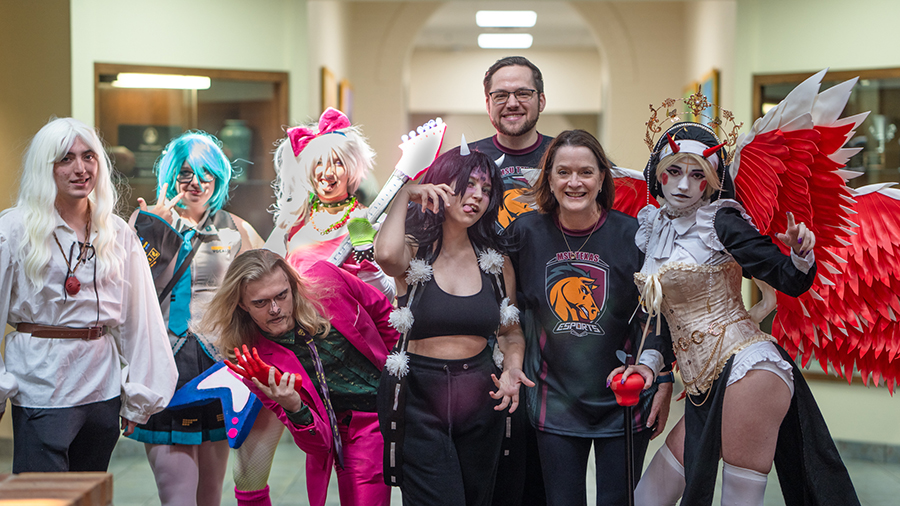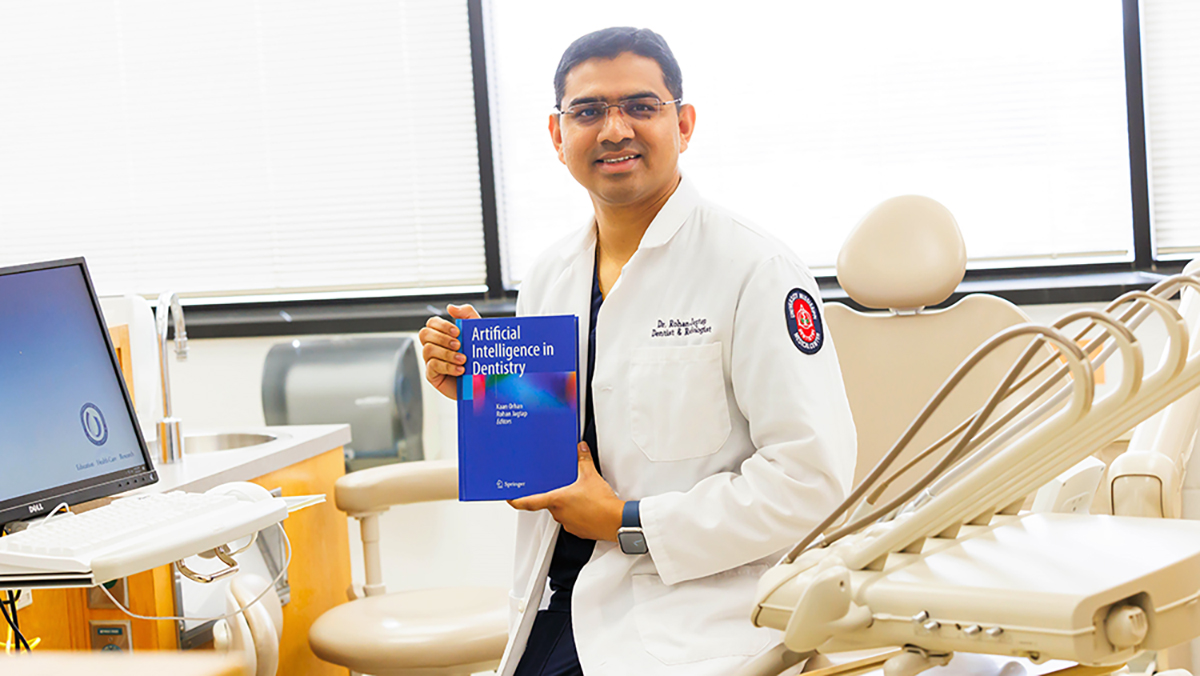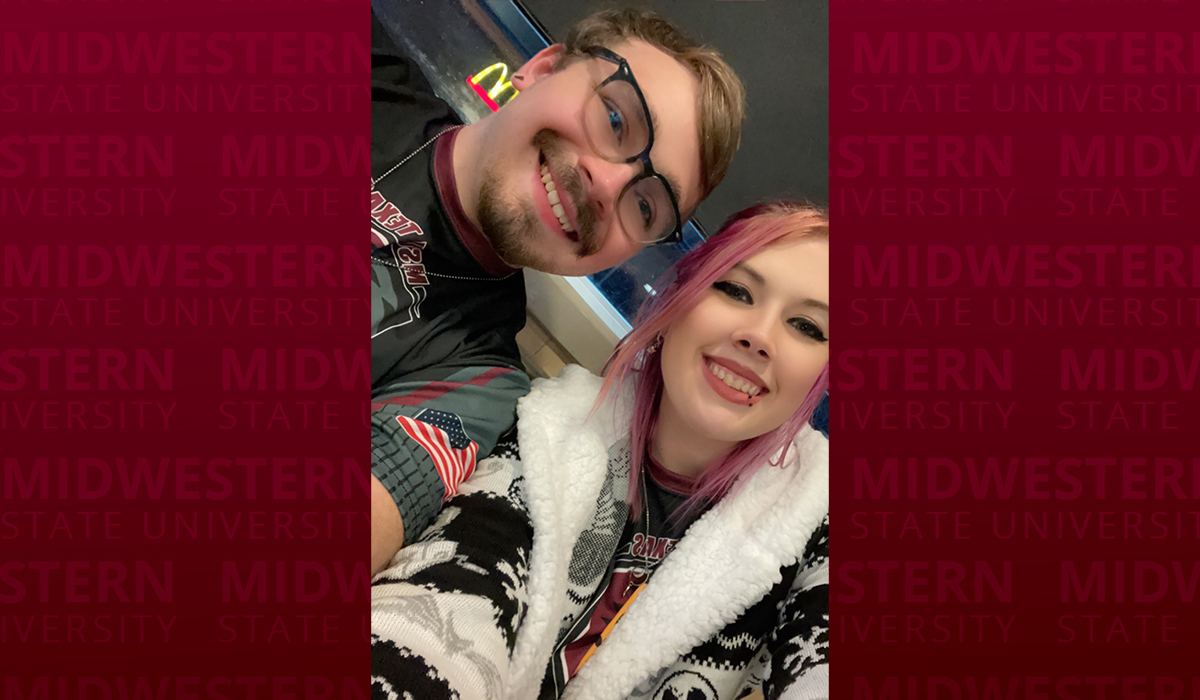Grant helps chemistry department obtain new equipment
Thanks to a grant from the Welch Foundation and resourceful uses of donated outdated equipment, the Department of Chemistry in the McCoy College of Science, Mathematics & Engineering obtained a new piece of equipment essential to its accreditation with the American Chemical Society.
A grant from the Welch Foundation provided $75,000 toward purchasing a 100 megahertz nuclear magnetic resonance spectrometer for the chemistry department. The new NMR will go into the instrument room of the remodeled Bolin Hall.
Chemistry Department Chair Chris Hansen said that the NMR does the same thing for organic compounds as magnetic resonance imaging does for a body. It measures hydrogen atoms in organic compounds and is used in the lab by second-semester organic chemistry students. It can determine the molecular structure of a sample at the atomic level. Research students take a reagent and mix it with hydrogen in hopes of making a compound. The results are a graph that shows the chemical component of the new molecule. Students analyze the product and determine if it was what they had predicted.
The department’s first NMR was obtained in 1996. Hansen said that when Bolin Hall was remodeled that year, the cost of a 200 MHz NMR was included in the remodel cost. After approximately 25 years, the machine’s expected life span, it was time for a new one. The department obtained a 60 MHz NMR, which allowed it to keep the American Chemical Society accreditation. After three years of using the 60, it was traded in toward the purchase of the 100 MHz NMR.
Hanson said that the high resolution on their old 200 MHz NMR was great, but operating that machine took cryogenic procedures, which utilize helium. “It was an expensive tool to operate,” Hansen said. “The 60 served the department well, but the resolution was not near as good. The resolution on the 100 is good and without the high operating costs of the 200.” It weighs approximately 220 pounds.
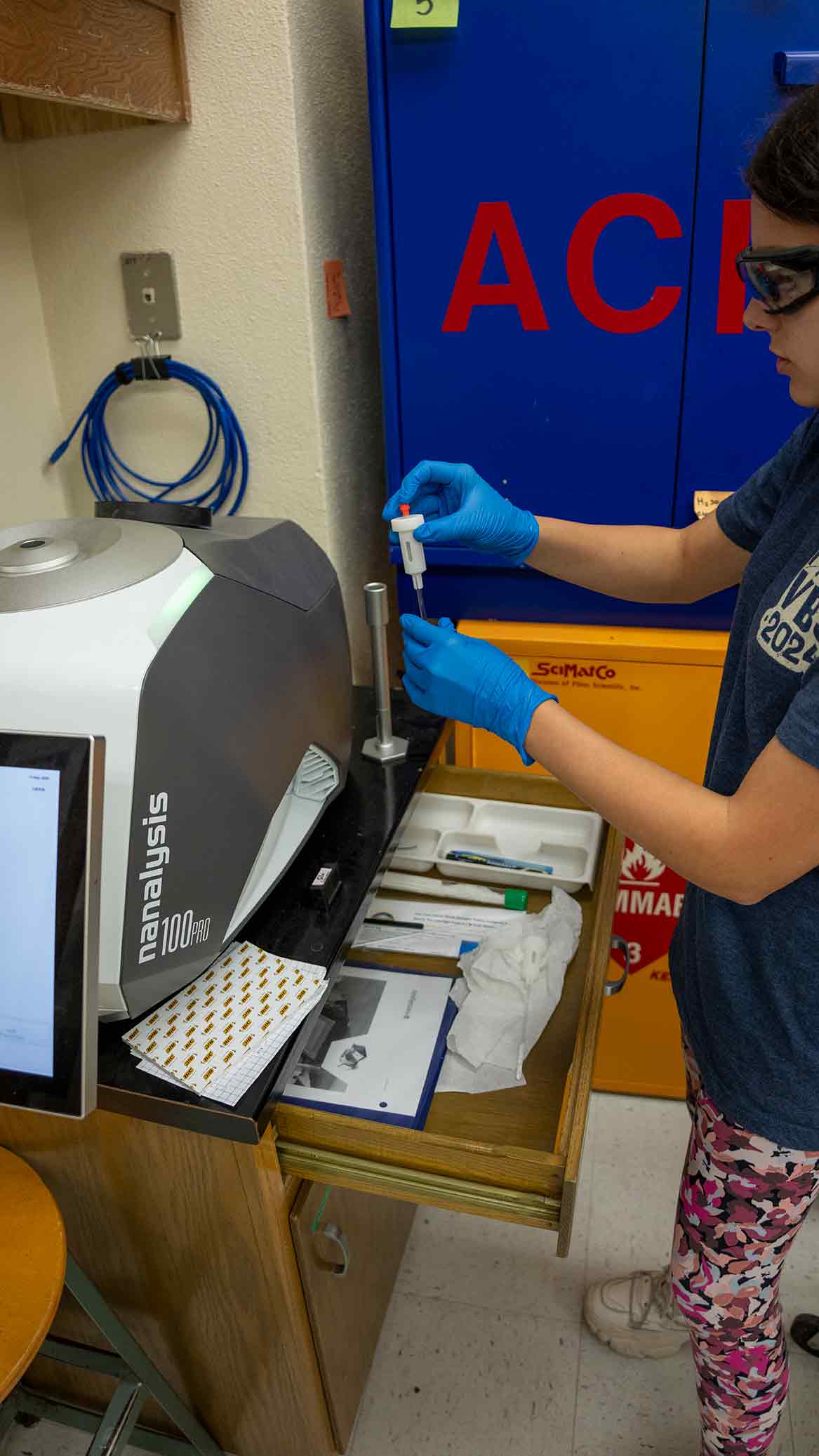
Organic Chemistry research student and teaching assistant Glenna Linthicum prepares a sample for analysis in the NMR spectrometer.
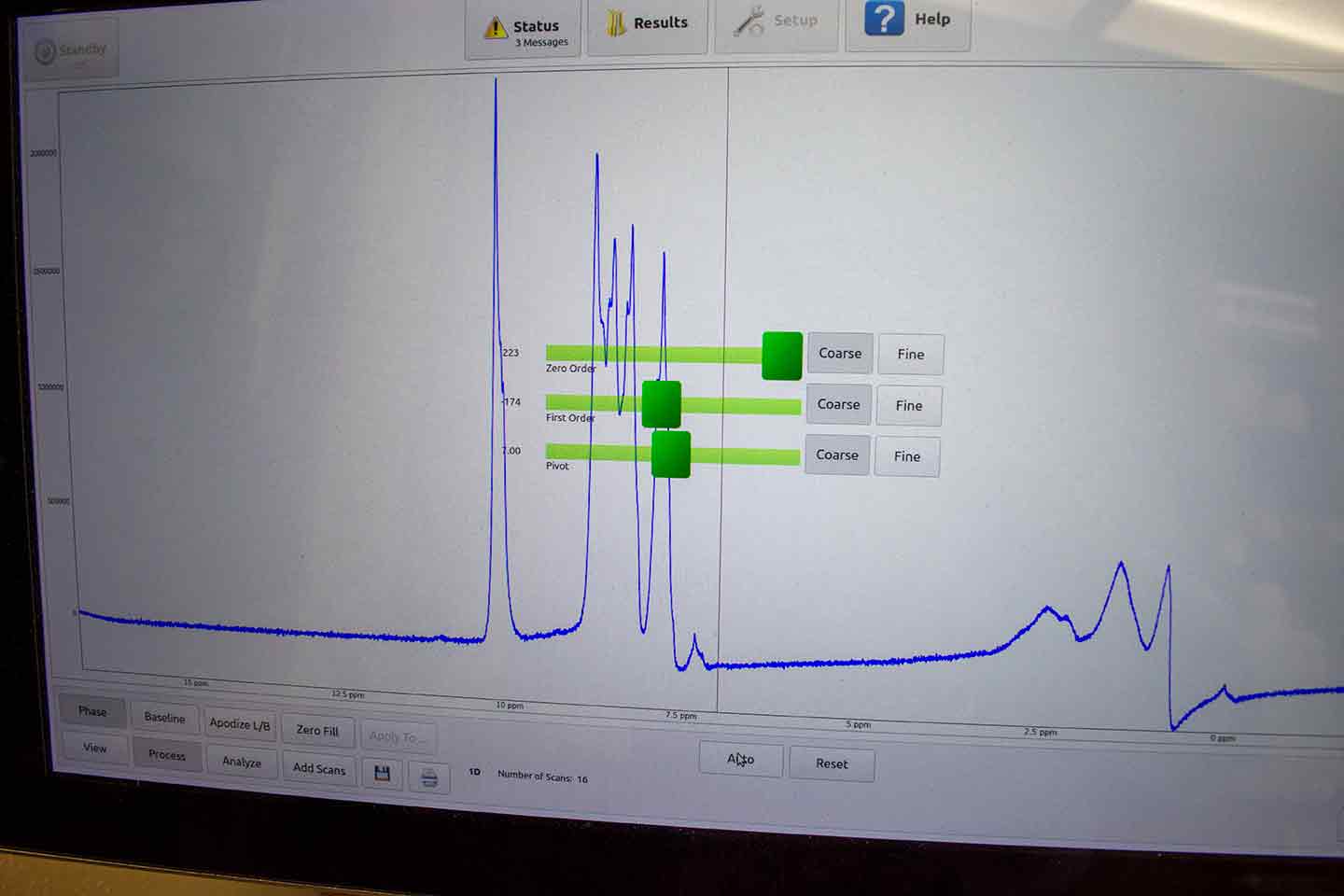
Raw chemical analysis data on the NMR screen. In top feature photo, the Department of Chemistry’s 100 megahertz nuclear magnetic resonance spectrometer, funded in part by a $75,000 grant from the Welch Foundation.
The NMR cost approximately $150,000 new, with the Welch grant allowing $75,000 toward the purchase. The cost difference was made up in part thanks to Alcon, the eye care company, which donated equipment for the department to sell or use. By selling the used pieces and trading in the 60 MHz NMR, the department raised approximately $80,000 to upgrade the 60 MHz NMR to a 100.
Hansen credits former storeroom manager Nate Blank and Manager of Chemical Safety Raelene Keesling for their work with the used Alcon equipment. “They turned the donation into funds that helped with the upgrade,” Hansen said. They also purchased a new UV spectrometer and were able to use some of the donated Alcon equipment in the labs.
“It’s fortuitous for us that we received this,” Hansen said. “It’s good timing with our remodel.”
The Department has received a grant from the R.A. Welch Foundation since 1984, with most of the funds going toward student scholarships and some going toward supplies, faculty travel for research, and summer pay.
Working with Hansen on the grant were Professor of Chemistry Jianguo Shao, Associate Professor of Chemistry Fu Cheng Liang, and Instructor Elizabeth Machinus-Masuoka.
About the Welch Foundation:
The Welch Foundation is one of the nation’s largest private funding sources for fundamental chemical research at universities, colleges, and other educational institutions in Texas. Since its founding in 1954, the organization has contributed to the advancement of chemistry through research grants, departmental programs, endowed chairs, and other special projects at educational institutions in Texas.
Robert Alonzo Welch came to Houston as a youth and later a fortune in oil and minerals. Throughout his career and life, he became convinced of the importance of chemistry for the betterment of the world. He had a belief in science and the role it would play in the future. In his will, Mr. Welch stated: “I have long been impressed with the great possibilities for the betterment of Mankind that lay in the field of research in the domain of Chemistry.” With his death in 1952, Mr. Welch left a generous portion of his estate to his employees and their families. The balance began what is now The Welch Foundation.

